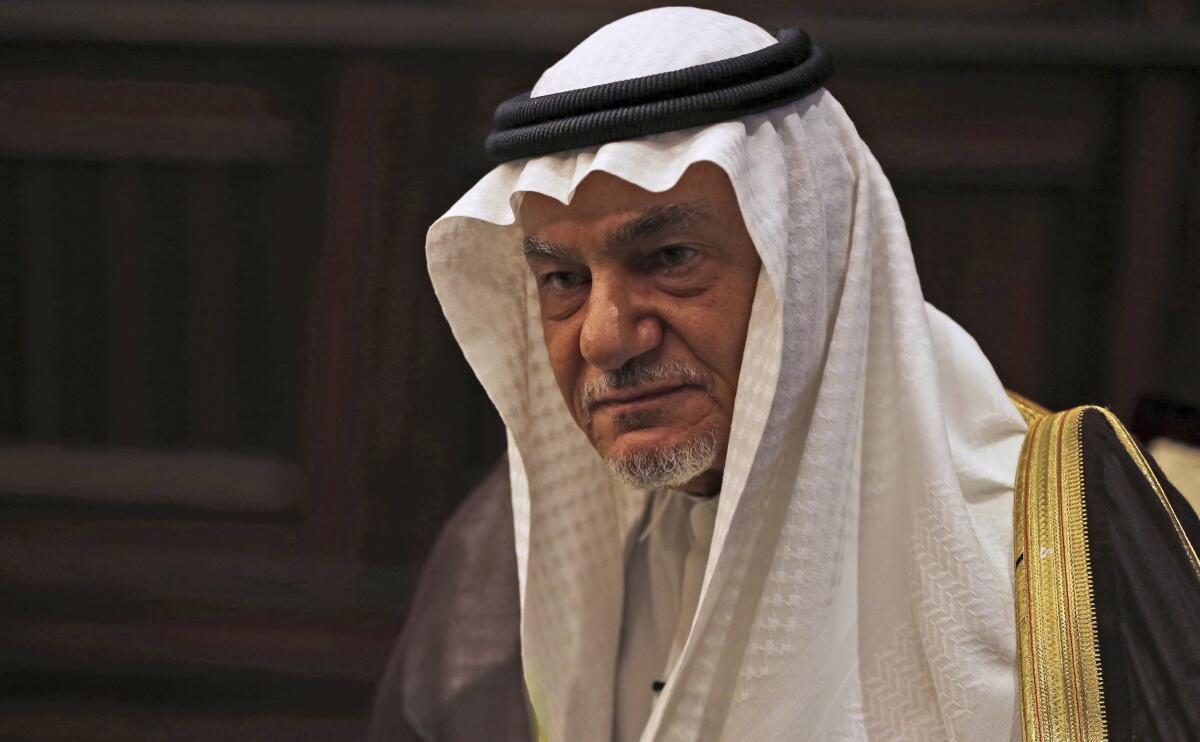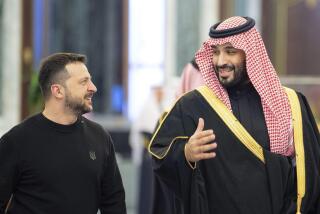Saudi prince strongly criticizes Israel at Bahrain summit

- Share via
DUBAI, United Arab Emirates — A prominent Saudi prince harshly criticized Israel on Sunday at a Bahrain security summit that was remotely attended by Israel’s foreign minister.
Prince Turki al-Faisal, who led Saudi intelligence for more than two decades and served as ambassador to the U.S. and U.K., said any normalization deals needed to help the Palestinians obtain their own independent state.
He described Israel as a “Western colonizing” power. He said Israel had “incarcerated [Palestinians] in concentration camps under the flimsiest of security accusations — young and old, women and men, who are rotting there without recourse to justice. They are demolishing homes as they wish, and they assassinate whomever they want.”
Although the prince does not hold any official position, his stance is seen as closely mirroring that of King Salman. In contrast, Saudi Crown Prince Mohammed bin Salman has signaled greater willingness to quietly engage with Israel to counter common rival Iran and boost foreign investment in the kingdom.
Prince Turki’s comments come as neighboring Bahrain and the United Arab Emirates recently moved to normalize relations and establish ties with Israel.
Saudi Arabia has insisted that any normalization between it and Israel can only happen alongside a lasting peace deal involving a two-state solution to the Israeli-Palestinian conflict. The kingdom publicly continues to state its unwavering support for the Arab Peace Initiative, a 2002 Saudi-sponsored deal that offers Israel full ties with all Arab states in return for Palestinian statehood on territory Israel captured in 1967.
Israeli Foreign Minister Gabi Ashkenazi, who spoke immediately after Prince Turki, said: “I would like to express my regret on the comments of the Saudi representative.”
“I don’t believe that they reflect the spirit and the changes taking place in the Middle East,” he said.
More to Read
Sign up for Essential California
The most important California stories and recommendations in your inbox every morning.
You may occasionally receive promotional content from the Los Angeles Times.









